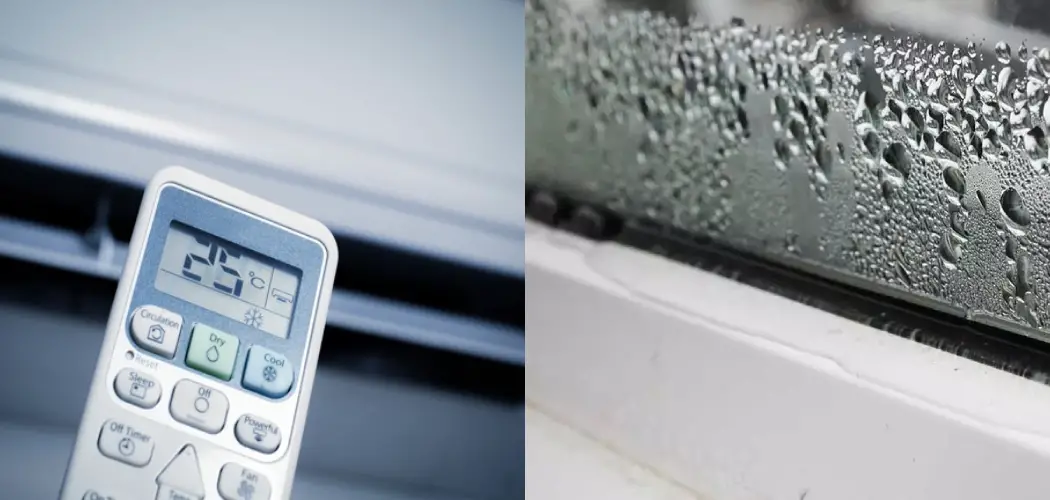The warm weather months are when many rely on their air conditioners to keep them cool and comfortable. But, in addition to cooling the air, air conditioners also remove humidity. This blog post will explain how do air conditioners remove humidity and what you can do to improve the performance of your air conditioner.
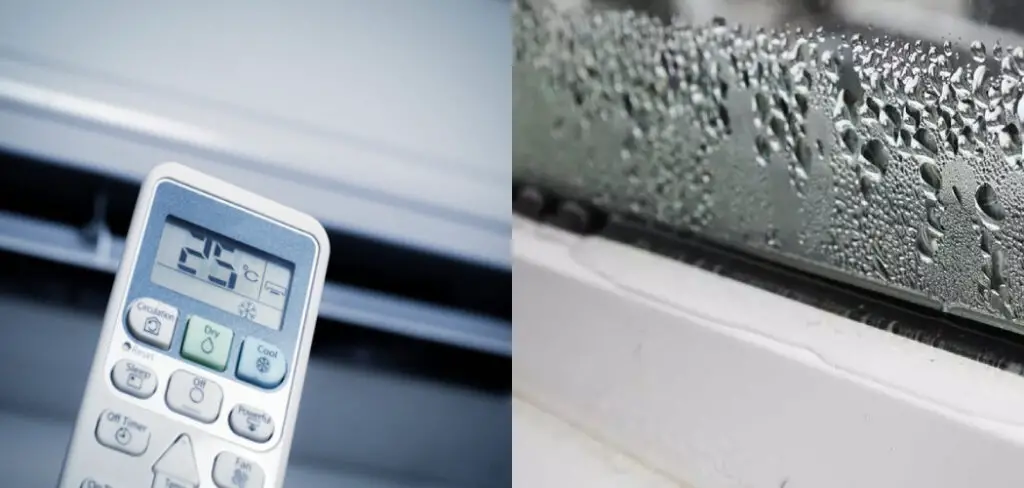
What Causes Humidity?
A few different things can cause the air in your home to become more humid than usual. One of the most common causes is the weather. Warm, muggy weather can cause the air in your home to become more humid. Other causes of increased humidity levels in your home include cooking, drying clothes, and showering. Certain types of houseplants can also increase the humidity in your home. Humidity levels can also increase if you have a leak in your home that allows outside air to come in. Lastly, if you have a humidifier, it can also cause the air in your home to become more humid.
Why Is Humidity a Problem?
While a little bit of humidity is not a problem, too much humidity can be. When the air in your home is too humid, it can feel muggy and uncomfortable. Additionally, high humidity levels can lead to the growth of mold and mildew. Not only do mold and mildew look unpleasant, but they can also cause respiratory problems. Additionally, high humidity levels can damage wood furniture and flooring. Another problem that high humidity levels can cause is condensation on windows. If you have ever noticed water droplets on your windows, it is likely because the humidity levels in your home were too high.
Is Air Conditioners Remove Humidity?
Air conditioners work by removing heat from the air. As the air conditioner removes heat, it also removes humidity. The air conditioner draws in warm, humid air and passes it over a cold coil. As the air passes over the cold coil, the water in the air condenses on the coil. The air that is sent back into your home is cooler and less humid. While air conditioners do remove humidity, they are not designed to remove all of the humidity from the air.
A Complete Guide on How Do Air Conditioners Remove Humidity
1. Use of a Refrigerant
The first way an air conditioner removes humidity is by using a refrigerant. This substance evaporates easily and can remove heat from the air. When the refrigerant evaporates, it absorbs heat from the air, lowering the air’s temperature. Likewise, if the air is humid, the refrigerant will absorb more moisture from the air, lowering the humidity level.
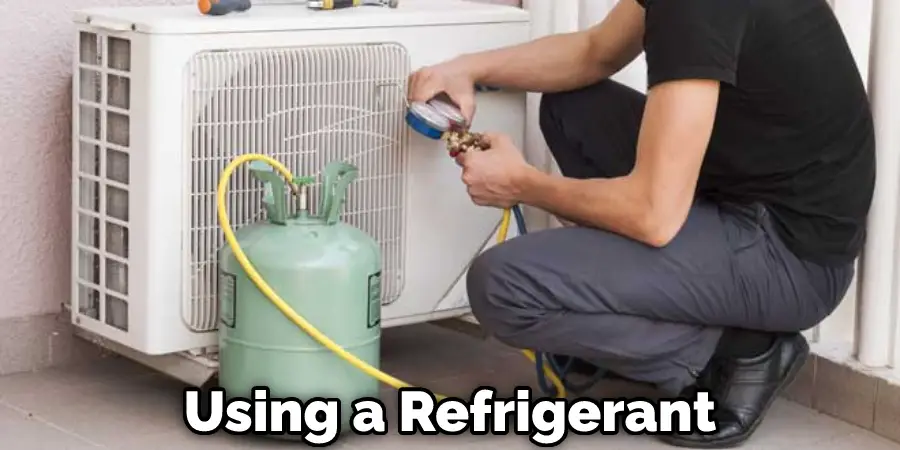
2. By Removing Warm Air
Another way air conditioners remove humidity is by removing warm air. Warm air can hold more moisture than cool air. The air conditioner removes the moisture it contains by removing the warm air. This can help to lower the humidity level in a room. If the room is very humid, the air conditioner may need to work harder to remove the moisture.
3. By Reducing The Amount of Air That is Circulated
Another way that air conditioners remove humidity is by reducing the amount of circulated air. When the air conditioner runs, it takes in air from the room and then circulates it back into the room. If the air conditioner is set to circulate less air, there will be less moisture in the air that is circulated. This can help to lower the humidity level in the room. If the room is very humid, the air conditioner may need to circulate less air to achieve the desired humidity level.
4. By Lowering the Temperature
Air conditioners also remove humidity by lowering the temperature. The air can hold less moisture when the air conditioner lowers the temperature. This can help to lower the humidity level in the room. If the room is very humid, the air conditioner may need to lower the temperature more to achieve the desired humidity level.
5. By Closing The Vents
Another way that air conditioners remove humidity is by closing the vents. When the vents are closed, the air conditioner does not take in air from the outside. This can help lower the room’s humidity level because the air conditioner is not bringing in moist air from outside. If the room is very humid, the air conditioner may need to close the vents to achieve the desired humidity level. Vents can also be opened to allow the air conditioner to take in air from outside, which can help to remove humidity if the outside air is not as humid as the air inside.
6. Use of an Evaporator
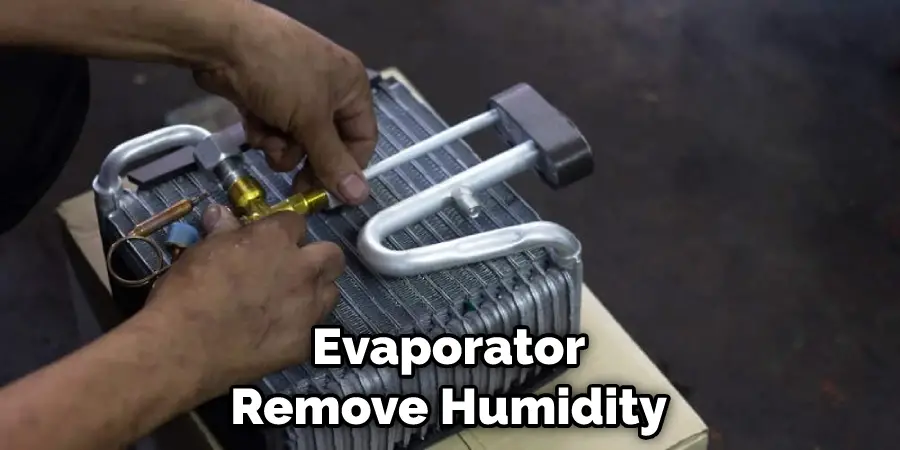
Air conditioners also use an evaporator to remove humidity. The evaporator is a device that removes moisture from the air. The evaporator works by passing the air over a cold surface. The moisture in the air condenses on the cold surface and is collected in a pan. The evaporator can help lower the room’s humidity level by removing moisture from the air. If the room is very humid, the evaporator may need to work harder to remove the moisture.
7. Use of a Condenser
Air conditioners also use a condenser to remove humidity. The condenser is the part of the air conditioner that removes humidity from the air. The condenser is a device that removes heat from the air. The condenser works by condensing the water vapor in the air into liquid water. This process is called dehumidification. The condenser is usually located outside the home and connected to the air conditioner through a pipe. The condenser is usually made of metal and filled with a refrigerant. The refrigerant is a substance that absorbs heat from the air. The condenser also has a fan that helps to circulate the air.
8. Use of a Drain Pan
Air conditioners also use a drain pan to remove humidity. The drain pan is a device that collects the water that is produced when the air conditioner is in operation. The water is then funneled away from the air conditioner, through a pipe, and into a drain. This system ensures that the air conditioner does not become overloaded with water and prevents the growth of mold and mildew. If the room is very humid, the drain pan may need to be emptied more often to prevent the growth of mold and mildew.
9. Use of a Humidifier

Air conditioners also use a humidifier to remove humidity. The humidifier is a device that adds moisture to the air. The humidifier is used to prevent the growth of mold and mildew. Mold and mildew can cause respiratory problems, so keeping the air in your home free of these allergens is important. The humidifier works by adding moisture to the air. The air is then circulated through the air conditioner.
The air conditioner removes the moisture from the air and adds it to the water in the condenser. The water in the condenser is then used to cool the air. The humidifier is a very important part of the air conditioning system and should be checked regularly to ensure that it is working properly.
10. Use of a Dehumidifier
Air conditioners also use a dehumidifier to remove humidity. The dehumidifier is a device that removes moisture from the air. It does this by using a fan to force air through a wet pad. The water is then condensed and collected in a container. The dehumidifier can remove humidity from the air in a room or the entire house.
Tips and Warnings on How Do Air Conditioners Remove Humidity
Tips:
- Be sure to keep your AC unit clean. A buildup of dirt and dust can make it work less efficiently and may cause problems.
- Check the evaporator coils monthly. If they’re dirty, clean them according to the manufacturer’s instructions.
- Keep the area around your AC unit free of clutter. This will ensure good airflow and help the unit work more efficiently.
- Have your AC unit regularly serviced by a professional. This will help keep it in good working condition and catch any potential problems before they become serious.
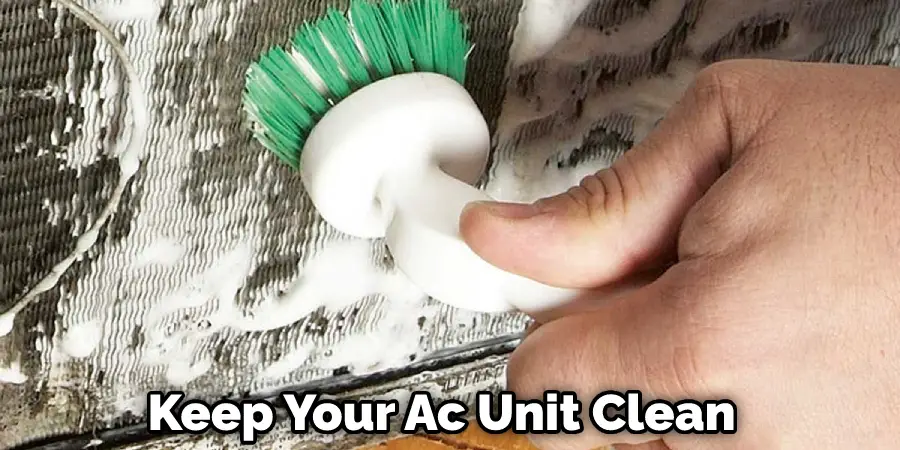
Warnings:
- Don’t try to clean or repair your AC unit yourself unless you’re confident in your abilities and know exactly what you’re doing.
- Do not block the airflow around your AC unit. This can cause it to overheat and break down.
- Do not use extension cords with your AC unit. This can pose a fire hazard.
- Never place your AC unit in an enclosed space such as a closet. This can lead to dangerous levels of carbon monoxide buildup.
- Do not use a space heater to supplement your AC unit. This is a fire hazard and can also lead to carbon monoxide buildup.
Conclusion
Humidity is a big problem for air conditioners. Not only does it cause the coils to freeze, but it also makes people feel uncomfortable. In this post, we’ve looked at how do air conditioners remove humidity and what you can do to help them work better. If you have any questions or comments, please let us know in the comments section below!
Youi Can Chack It Out to Make a Portable Air Conditioner Work Better

